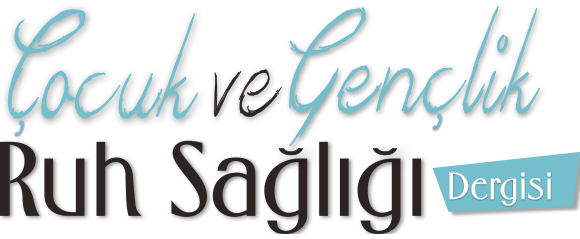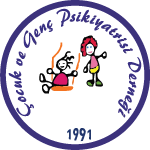ABSTRACT
Objectives:
This research aims to develop and verify a measurement tool suitable for Turkish culture to measure the mental health literacy (MHL) of adolescents (12-17 years old).
Materials and Methods:
A four-stage process was conducted out by the researchers. The scale developed and validated in Northern Cyprus was also validated in Turkey and additional evidence was provided for the scale in terms of conformity with Turkish culture. The study group consisted of 994 secondary and high school stçudents aged 12-17 studying in Northern Cyprus in the 2021-2022 academic year, and a total of 495 secondary and high school students aged 12-17 studying in Turkey. Validity studies of the scale were conducted out using explanatory and confirmatory factor analysis. Within the scope of reliability, internal consistency and test-retest reliability were evaluated.
Results:
It was observed that the factor loads obtained as a result of the explanatory factor analysis of the scale ranged from 0.549 to 0.796, and this structure explained 51.8% of the total variance. The variance explained by the sub-factors of positive mental health, seeking help, recognizing warning signs and positive attitude were found to be 24.6%, 11.5%, 8.2 and 7.5, respectively. It was observed that the correlations for the sub-factors ranged from 0.18 to 0.35. Confirmatory factor analysis results also showed acceptable and good/excellent fit indices. The reliability coefficient for the whole scale is 0.80 in Northern Cyprus; it was calculated as 0.84 in Turkey.
Conclusion:
The findings show that the adolescent MHL scale is a valid and reliable measurement tool that can be used in future research, consisting of 18 items and four subscales: “positive mental health”, “help seeking”, “recognition of warning signs”, and “positive attitude”.
Keywords:
Mental health literacy, adolescent, scale development, Northern Cyprus, Turkey
References
1Nutbeam D. Health promotion glossary. Health Promotion International. 1998;13:349-364.
2Bjørnsen HN, Eilertsen M, Bradley E, Ringdal R, Espnes GA, Moksnes UK. Positive mental health literacy: development and validation of a measure among Norwegian adolescents. BMC Public Health. 2017;17:1-10.
3Jorm AF, Korten AE, Jacomb PA, Christensen H, Rodgers B, Pollitt P. “Mental health literacy”: a survey of the public’s ability to recognise mental disorders and their beliefs about the effectiveness of treatment. Med J Aust. 1997;17;166:182-186.
4Kutcher S, Wei Y, McLuckie A, Bullock L. Educator mental health literacy: a programme evaluation of the teacher training education on the mental health & high school curriculum guide. Adv School Men Health Promot. 2013;6:83-93.
5Kutcher S, Bagnell A, Wei Y. Mental health literacy in secondary schools: a Canadian approach. Child Adolesc Psychiatr Clin North Am. 2015;24:233-244.
6Kutcher S, Wei Y, Coniglio C. Mental health literacy: Past, present, and future. Can J Psychiatry. 2016;61:154-158.
7Wei Y, Hayden JA, Kutcher S, Zygmunt A, McGrath P. The effectiveness of school mental health literacy programs to address knowledge, attitudes and help seeking among youth. Early Interv Psychiatry. 2013;7:109-121.
8Wei Y, McGrath PJ, Hayden J, Kutcher S. Measurement properties of tools measuring mental health knowledge: a systematic review. BMC Psychiatry. 2016;23;16:297.
9Dias P, Campos L, Almeida H, Palha F. Mental Health Literacy in Young Adults: Adaptation and Psychometric Properties of the Mental Health Literacy Questionnaire. Int J Environ Res Public Health. 2018;23;15:1318.
10Adu P, Jurcik T, Dmitry G. Mental health literacy in Ghana: Implications for religiosity, education and stigmatization. Transcult Psychiatry. 2021;58:516-531.
11Aller TB, Kelley HH, Fauth EB, Barrett TS. A Non-randomized, Quasi-Experimental Comparison of Effects Between an In-person and Online Delivery of a College Mental Health Literacy Curriculum. Prev Sci. 2022;23:1208-1215.
12Bjørnsen HN, Espnes GA, Eilertsen MB, Ringdal R, Moksnes UK. The Relationship Between Positive Mental Health Literacy and Mental Well-Being Among Adolescents: Implications for School Health Services. J Sch Nurs. 2019;35:107-116.
13Göktaş S, Işıklı B, Metintaş S. Ruh Sağlığı Okuryazarlığı. ESTÜDAM Halk Sağlığı Dergisi. 2018;3:67-75.
14Gallagher CE, Watt MC. Mental health literacy in a sample of Canadian adults. Can J Behav Sci. 2019;51:171-180.
15Lam LT. Mental health literacy and mental health status in adolescents: a population-based survey. Child Adolesc Psychiatr Ment Health. 2014;8.1:26.
16Mehrotra K, Nautiyal S, Raguram A. Mental health literacy in family caregivers: A comparative analysis. Asian J Psychiatr. 2018;31:58-62.
17Salerno JP. Effectiveness of Universal School-Based Mental Health Awareness Programs Among Youth in the United States: A Systematic Review. J Sch Health. 2016;86:922-931.
18Wei Y, Carr W, Alaffe R, Kutcher S. Mental health literacy development: Application of online and in-person professional development for preservice teachers to address knowledge, stigma, and help-seeking intentions. Can J BehavSci. 2020;52:107.
19Kutcher S, Wei Y, Morgan C. Successful application of a Canadian mental health curriculum resource by usual classroom teachers in significantly and sustainably improving student mental health literacy. Can J Psychiatry. 2015;60:580-586.
20Mond JM, Hay P, Rodgers B, Owen C. Mental health literacy and eating disorders: What do women with bulimic eating disorders think and know about bulimia nervosa and its treatment? JMent Health. 2008;17:565-575.
21Wei Y, McGrath PJ, Hayden J, Kutcher S. Mental health literacy measures evaluating knowledge, attitudes and help-seeking: a scoping review. BMC Psychiatry. 2015;15:1-20.
22Ahmad A, Salve HR, Nongkynrih B, Sagar R, Krishnan A. Mental health literacy among adolescents: Evidence from a community-based study in Delhi. Int JSocPsychiatry. 2021;68:791-797.
23Bjørnsen HN, Ringdal R, Espnes GA, Eilertsen MEB, Moksnes UK. Exploring MEST: a new universal teaching strategy for school health services to promote positive mental health literacy and mental wellbeing among Norwegian adolescents. BMC Health ServRes. 2018;18:1-13.
24Brooks H, Prawira B, Windfuhr K, Irmansyah I, Lovell K, Syarif AK, Dewi SY, Pahlevi SW, Rahayu AP, Syachroni, Afrilia AR, Renwick L, Pedley R, Salim S, Bee P. Mental health literacy amongst children with common mental health problems and their parents in Java, Indonesia: a qualitative study. Glob Ment Health. 2022;21;9:72-83.
25Jumbe S, Nyali J, Simbeye M, Zakeyu N, Motshewa G, Pulapa SR. ‘We do not talk about it’: Engaging youth in Malawi to inform adaptation of a mental health literacy intervention. PLoS One. 2022;29;17:e0265530.
26Ueda J, Yamaguchi S, Matsuda Y, Okazaki K, Morimoto T, Matsukuma S, Sasaki T, Kishimoto T. A Randomized Controlled Trial Evaluating the Effectiveness of a Short Video-Based Educational Program for Improving Mental Health Literacy Among Schoolteachers. Front Psychiatry. 2021;26;12:596293.
27Kutcher S, Wei Y, Costa S, Gusmão R, Skokauskas N, Sourander A. Enhancing mental health literacy in young people. Eur Child Adolesc Psychiatry. 2016;25:567-569.
28Kessler RC, Berglund P, Demler O, Jin R, Merikangas KR, Walters EE. Lifetime prevalence and age-of-onset distributions of DSM-IV disorders in the National Comorbidity Survey Replication. Arch Gen Psychiatry. 2005;62:593-602.
29Whiteford HA, Degenhardt L, Rehm J, Baxter AJ, Ferrari AJ, Erskine HE, Charlson FJ, Norman RE, Flaxman AD, Johns N, Burstein R, Murray CJ, Vos T. Global burden of disease attributable to mental and substance use disorders: findings from the Global Burden of Disease Study 2010. Lancet. 2013;9;382:1575-1586.
30Aller TB, Fauth EB, Novak JR, Schwartz S. Measuring mental health literacy: Development of the mental health awareness and advocacy assessment tool. J MultiDisc Eval. 2021;17:15-31.
31Chao HJ, Lien YJ, Kao YC, Tasi IC, Lin HS, Lien YY. Mental Health Literacy in Healthcare Students: An Expansion of the Mental Health Literacy Scale. Int J Environ Res Public Health. 2020;4;17:948.
32Nejatian M, Tehrani H, Momeniyan V, Jafari A. A modified version of the mental health literacy scale (MHLS) in Iranian people. BMC Psychiatry. 2021;23;21:53.
33O’Connor M, Casey L. The Mental Health Literacy Scale (MHLS): A new scale-based measure of mental health literacy. Psychiatry Res. 2015;30;229:511-6.
34Rabin LA, Miles RT, Kamata A, Krishnan A, Elbulok-Charcape M, Stewart G, Compton MT. Development, item analysis, and initial reliability and validity of three forms of a multiple-choice mental health literacy assessment for college students (MHLA-c). Psychiatry Res. 2021;300:113897.
35Wei Y, Baxter A, Kutcher S. Establishment and validation of a mental health literacy measurement in Canadian educators. Psychiatry Res. 2019;279:231-236.
36Wu J, Wang C, Lu Y, Zhu X, Li Y, Liu G, Jiang G. Development and initial validation of the mental health literacy questionnaire for chinese adults. Curr Psychol. 2022;1-16.
37Campos L, Dias P, Palha F, Duarte A, Veiga E. Development and psychometric properties of a new questionnaire for assessing mental health literacy in young people. Univers Psychol. 2016;15:61-72.
38Castellvi P, Casañas R, Arfuch VM, Gil Moreno JJ, Torres Torres M, García-Forero C, Ruiz-Castañeda D, Alonso J, Lalucat-Jo L. Development and Validation of the EspaiJove.net Mental Health Literacy (EMHL) Test for Spanish Adolescents. Int J Environ Res Public Health. 2019;20;17:72.
39Simkiss NJ, Gray NS, Dunne C, Snowden RJ. Development and psychometric properties of the Knowledge and Attitudes to Mental Health Scales (KAMHS): a psychometric measure of mental health literacy in children and adolescents. BMC Pediatr. 2021;13;21:508.
40Canciğer Eltaş M. “Student Mental Health Literacy Scale for Teacher Candidates” Development Research Hatay Mustafa Kemal Üniversitesi Tayfur Ata Sökmen Tıp Fakültesi, Hatay, 2020. (Medical Specialization Thesis).
41Akdoğan E. Turkish Adaptation of Mental Health Literacy Scale, Validity and Reliability Study. Karabük University Faculty of Health Sciences and Technology, Karabük, 2018. (Unpublished Master’s Thesis).
42Göktaş S, Işıklı B, Önsüz M, Yenilmez Ç, Metintaş S. Ruh sağlığı okuryazarlığı ölçeği’nin (Rsoy Ölçeği) Türkçe geçerlilik ve güvenilirliğinin değerlendirilmesi. Konuralp Medical Journal. 2019;11:424-431.
43Tokur Kesgin M, Pehlivan Ş, Uymaz P. Ruh sağlığı okuryazarlığı ölçeğinin Türkçe uyarlaması: Geçerlilik ve güvenilirlik çalışması. Anatol J Psychiatry. 2020;21:5-14.
44Mercan N, Coşkun S. Ruh sağlığını geliştirici bilgiler ölçeğinin Türkçe versiyonu: Ergenlerde geçerlilik ve güvenilirlik çalışması. Turk J Child Adolesc Mentl Health. 2022;29:7-14.
45The Helsinki Declaration of the World Medical Association (WMA). Ethical principles of medical research involving human subjects. Polski merkuriusz lekarski: organ. Polskiego Towarzystwa Lekarskiego. 2014;36:298-301.
46Kaiser HF. An index of factorial simplicity. Psychometrika. 1974;39:31-36.
47Pallant, J. SPSS survival manual: A step by step guide to data analysis using SPSS for Windows. Maidenhead:Open University Press. 2001.
48Browne MW, Cudeck R. Alternative ways of assessing model fit. In KA Bollen, JS Long, Testing structural equation models. Newbury Park,CA:Sage. 1993:136-162.
49Kline RB. Principles and practice of structural equation modeling (7 th ed.). Guilford publications;2015.
50Tabachnick BG, Fidell LS. Using multivariate statistics (6 th ed.). New Jersey:Pearson. 2013.
51Nunnally JC, Bernstein IH. Psychometric theory (McGraw-Hill Series in Psychology) (3 th ed.). New York:McGraw-Hill. 1994.
52Ayre C, Scally AJ. Critical values for Lawshe’s content validity ratio: revisiting the original methods of calculation. Meast Eval Counsel Dev. 2014;47:79-86.
53DeVellis RF. Scale development, theory and practice (Ed. Tarık Totan). Ankara:Nobel Yayınevi. 2014.



